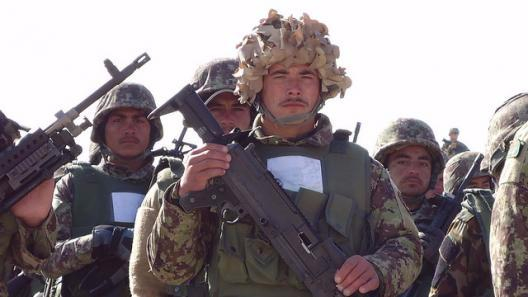 Julian Barnes, Wall Street Journal: President Trump has said in addition to more defence spending he wants more of a focus on counter terrorism from NATO. You and other allied officials have talked about NATO’s contribution being in building partnership capacity. This report outlines a lot of different areas where you’re doing training missions, what is the way forward? Is it doing more training missions or is it doing training missions more quickly or is it doing them in a different way to make them more effective? What is your thinking of how you’re going to address this demand that NATO adapt and evolve?
Julian Barnes, Wall Street Journal: President Trump has said in addition to more defence spending he wants more of a focus on counter terrorism from NATO. You and other allied officials have talked about NATO’s contribution being in building partnership capacity. This report outlines a lot of different areas where you’re doing training missions, what is the way forward? Is it doing more training missions or is it doing training missions more quickly or is it doing them in a different way to make them more effective? What is your thinking of how you’re going to address this demand that NATO adapt and evolve?
JENS STOLTENBERG: It may be all three of them and we have an open mind to how NATO can step up its efforts to fight terrorism. I think the important thing is to know or to understand is that we have to do it in different ways, in different regions and in different parts of the world, and we need tailor made approaches to the different countries we are working with. We have one approach in Afghanistan and we must not forget that Afghanistan is about fighting terrorism. The reason why we went into Afghanistan was a direct response to a terrorist attack on the United States and the main reason why we still are in Afghanistan is to prevent Afghanistan from becoming a safe haven for international terrorists. We have 13,000 troops there and if there’s any lesson learned from Afghanistan it’s that we should have started earlier to train local forces, to build local capacity. So that’s what we do in Afghanistan now, the Afghans are responsible for security in their own country themselves, we train, help and assist them. We can’t not copy that but we can get some inspiration from them, when we for instance work in Iraq and again I think it’s extremely important that we train local forces, when Mosul is liberated we need some local forces to keep the territory, to stabilize the region and as long as we don’t plan to deploy our own forces and that’s not on the agenda at all, then we need local forces.
We also have this concept of deployable mobile teams. So we have deployed mobile training teams from NATO to different countries in the region and we will continue to do so. We are, we have established a hub in the south which can coordinate more activities and of course we can also do more when it comes to just helping to build defence institutions. Because it’s not sufficient to train troops if you don’t have defence structures, institutions, that can make sure that those troops are led, coordinated in a good way. That’s exactly what we are for instance now starting to address in Libya. So we have a wide range of opportunity or possibilities, NATO is already doing a lot and we describe all the different activities in the Annual Report but I can foresee that we can actually scale up some of the activities we have and we can also of course do different kinds of activities in addition.
Excerpt from press conference by NATO Secretary General Jens Stoltenberg at the launch of his Annual Report for 2016; March 13, 2017.
Image: Graduation day for Afghan soldiers, Feb. 17, 2010 (photo: Operation Resolute Support Media)
